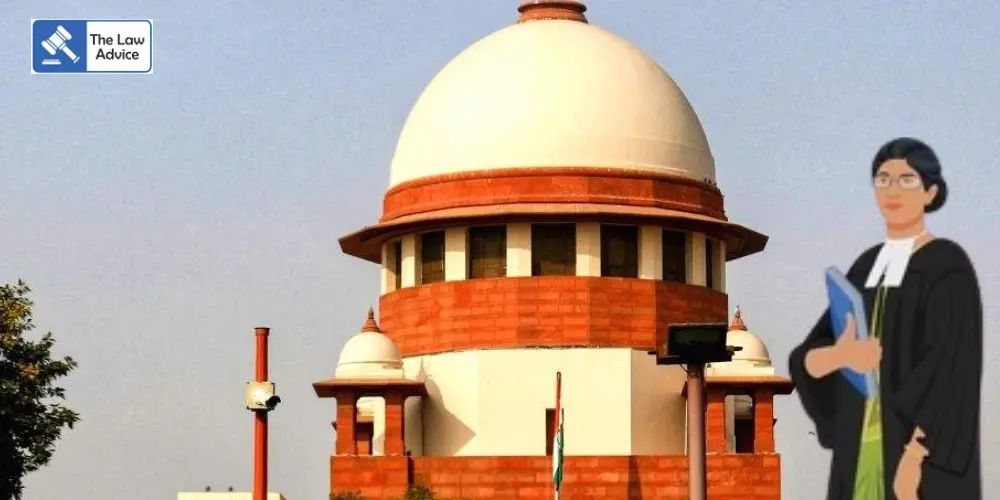
The Supreme Court of India on October 13 issued notice on a petition seeking the formulation of a uniform and gender-sensitive policy for the allotment of professional chambers and cabins to women advocates across all courts and bar associations in the country.
The petitioners — practicing women lawyers — have sought reservation or prioritization of chambers for women advocates in future allotments, along with the construction and priority allotment of chambers for women with over 25 years of practice at the Supreme Court who remain on the Supreme Court Bar Association’s (SCBA) waiting list.
A bench comprising Justice Surya Kant and Justice Joymalya Bagchi heard the matter and passed the order issuing notice to the Union of India, the Secretary General of the Supreme Court, the Supreme Court Bar Association (SCBA), and the Bar Council of India (BCI).
During the hearing, Justice Surya Kant observed that the concept of individual chambers may eventually need to be reconsidered or phased out, suggesting that shared workstations, common sitting areas, and client meeting rooms could replace traditional chamber setups.
“The new Supreme Court building has been designed keeping in mind all the needs of lawyers,” Justice Kant remarked, indicating that modernized, flexible workspaces might address the infrastructure concerns of both men and women advocates.
At the same time, the Bench appeared hesitant to endorse ‘reservation’ in chamber allotment. Justice Kant pointed out that women have excelled in the legal profession and judiciary purely on merit, without any quota or preference.
“In our judicial service, almost 60% of officers are women. They are there not because of any reservation… it is solely on merit. That’s why I find it paradoxical that you ask for any privilege. If we think of preferential allocation, for example in the matter of chambers, then we should also think of specially-abled persons,” Justice Kant said.
Responding to the Bench’s observations, the senior counsel appearing for the petitioners clarified that the plea does not seek a merit-based advantage, but merely a structural correction in infrastructure allocation.
The petition argues that the lack of accessible professional spaces in courts disproportionately affects women advocates, particularly those from first-generation, non-metropolitan, and marginalized backgrounds.
The petitioners emphasized that chamber allotment is not a measure of professional competence, but an essential infrastructural facility enabling advocates to practice efficiently.
They noted that despite 15–25 years of legal practice, many women lawyers are still on the SCBA’s waiting list and have been excluded from recent allotments, including 68 cubicles allotted in the Supreme Court’s D Block between July and October 2024.
The plea describes the existing allotment system as “facially neutral but outcome-inequitable”, arguing that it fails to account for structural disadvantages faced by women in the legal profession.
It asserts that this systemic exclusion violates the fundamental rights of women advocates under Articles 14 (Equality before law), 15 (Prohibition of discrimination), 19(1)(g) (Freedom to practice profession), and 21 (Right to livelihood and dignity) of the Constitution of India.
The petitioners further urged that affirmative action or preferential allotment should be recognized as a legitimate corrective measure to achieve genuine equality in professional spaces.
Justice Surya Kant, while expressing concern over challenges faced by young women professionals, remarked that the focus should also include practical supports such as court-annexed creche facilities and flexible work arrangements, as many women lawyers are compelled to leave practice due to family responsibilities.
He added that similar infrastructural considerations should also extend to lawyers with special needs, promoting a broader culture of inclusivity within the legal workspace ecosystem.
The Supreme Court has issued notice to all respondents and sought their responses. The matter will be taken up after replies are filed. The Court clarified that no interim relief or directions have been granted at this stage.
Case Title: Bhakti Pasrija and Ors. v. Union of India and Ors.
Case No.: W.P. (C) 921/2025
Website designed, developed and maintained by webexy